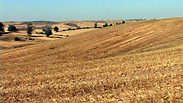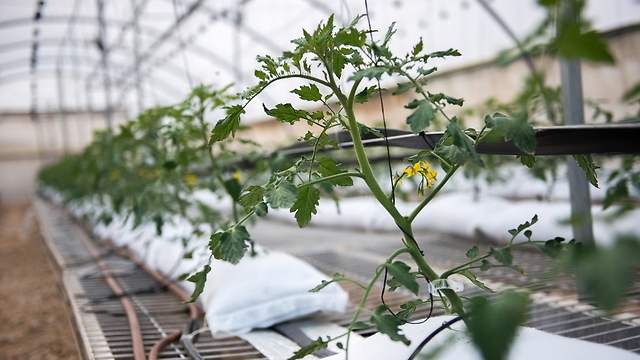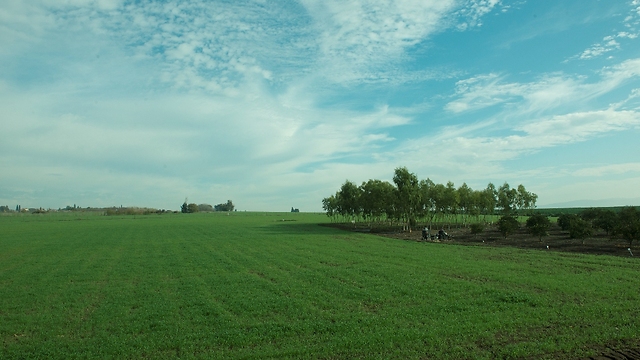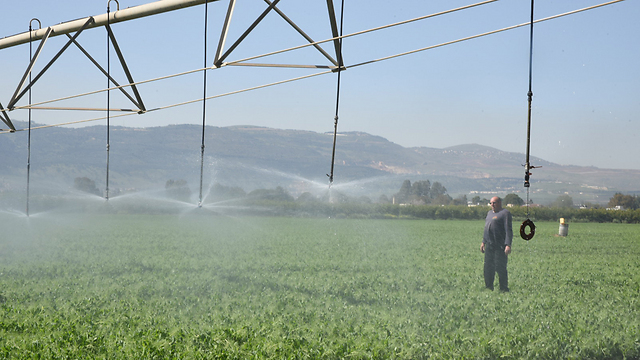
The moral value of the Israeli tomato
Op-ed: Israeli farmers work the land not just as a source of income, it is their connection to the land of their ancestors.
The ministers of finance and agriculture have promised to lower the price of produce before the holidays, among other things by importing cheaper crops to encourage competition. The agriculture minister's position gets support, among others, from the Kohelet Policy Forum, which represents right-wing economic policies imported from the Americans.
Cost-benefit analyses and competition are - for these think tanks - a fundemental value, and thus they support Finance Ministry bureaucrats who demand an economic reason that justifies the national farming enterprise. If, for instance, tomatoes from Spain are cheaper than tomatoes from Israel, government support for growing tomatoes in Israel should, in their view, be determined not by ideology, but by professional analysis.
At this point, the debate with the economic right wing becomes a matter of principle. The financial consideration is, according to this world view, a central and leading rational value, but in my eyes this is the sin of the golden calf - the worship of economic factors as the foremost value in human life.
This is the heart of the dispute: for the person working the land, and especially for Israeli farmers, this isn't just a source of income. Working the land is something holy to them, a love story. Even in Western capitalist countries, the government subsidizes agriculture because they know that agriculture imbues the hidden meaning in the term "homeland."
For Jews especially, who for generations preferred to live in cities, this connection to agriculture in Israel is essential. In the "Musaf" prayer said during the three pilgrimage festivals, we emphasize: "Because of our sins, we were exiled from our homeland, and we were distanced from our land." It is us who have distanced ourselves, and continue to distance ourselves, from our land.
Professor Yuri Slezkine of the University of California, Berkeley praised in his book "The Jewish Century" the almost genetic detachment Jews have from land. In the forward, the author writes that "The modern age is the age of the Jew. Modernization means to become more urban, mobile, have more intellectual complexity, become physically refined and occupationally flexible. This means learning how to cultivate people and symbols, and not herds and fields… modernization, in other words, means that everyone will turn into Jews."
The French mandate in Syria after the World War I deliberately stopped Jewish settlement on land in the southern Golan on lands bought by the Baron Rothschild during the Ottoman period. The French explained the decision by saying that the Jews were completely welcome to live there, as long as they worked in the same professions as they did in Paris - trade, banking, and industry. As long as they weren't farmers, because then they might turn into Zionists. They were indeed able to identify the power in the connection a Jew working the land of his ancestors would feel to that land.
Aharon David Gordon, the pioneer and educator, wrote 100 years ago that "If we don't work the land, with our own hands, it won't be our land any longer. Not just in the social sense, and not just in the national sense. In the political sense as well. The land will not be ours, and we will not be one with the land. We will be foreigners here like we are in the Diaspora."
The orchard owner Moshe Smilansky determined in the first days of the settlements: "If our agriculture is here, our homeland is here."
After more than 100 years, his call deserves to be heard once more in a reconnection to the land, with government support. The fight to reduce the cost of agricultural products should focus on reducing the brokerage gaps, which hurt the livelihoods of both farmers and produce buyers. Not by opening up the market to foreign imports, which might bring about the collapse of Israeli farmers.













